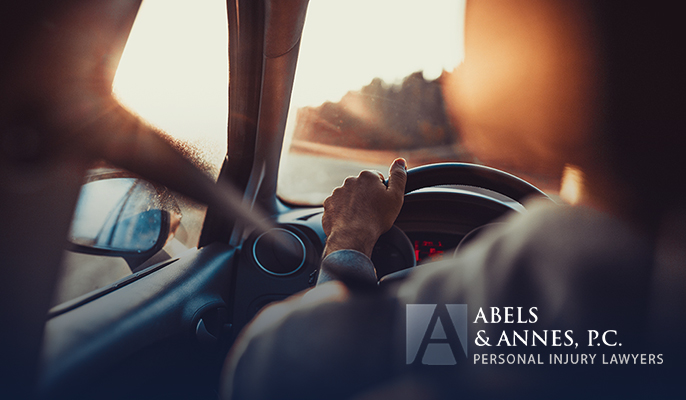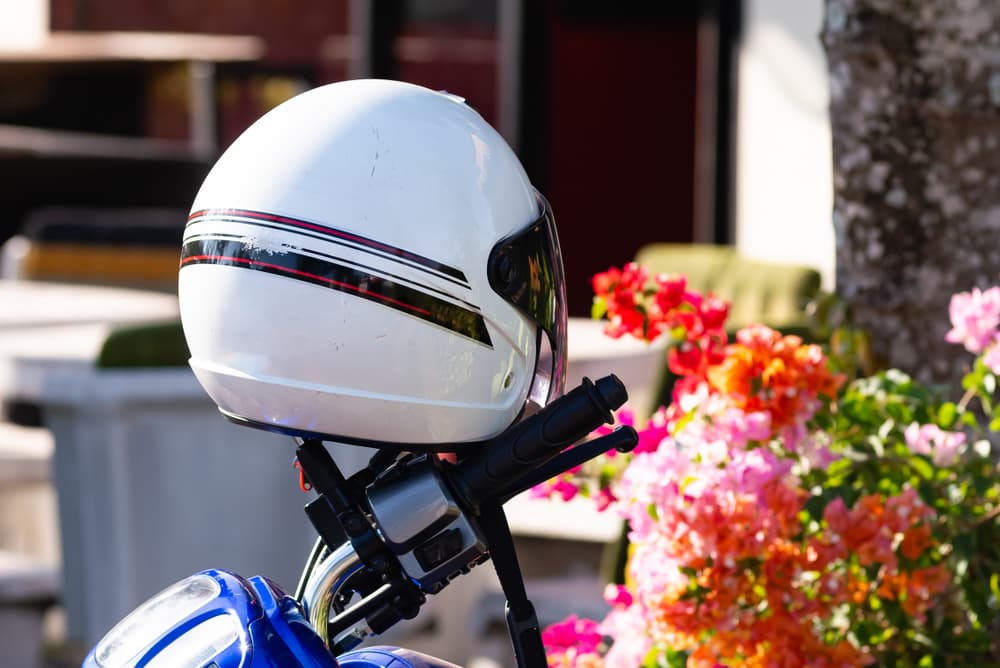Common Types of Injuries in Motorcycle Accidents
According to one study by the National Highway Traffic Safety Administration (NHTSA), a staggering 80 percent of all motorcycle accidents result in injuries or fatalities. By contrast, only 20 percent of car accidents involve injuries or deaths. Another study by NHTSA showed that lower-extremity injuries, and bone fractures in the legs, in particular, are the most common type of injury among motorcyclists involved in road accidents. However, motorcycle riders may also suffer:- Chest injuries
- Traumatic brain injuries
- Whiplash
- Concussion
- Spinal cord injury
- Paralysis
- Road rash
- Severe burns
- Broken ribs
- Loss of a limb
- Internal organ damage
- Lacerations
- Disfigurement
What Are the Most Common Causes of Motorcycle Accidents?
The vast majority of motorcycle accidents occur due to negligence on the part of the motorcyclist or driver. However, the causes of road accidents involving motorcycles vary from one case to another. Speak with a Phoenix motorcycle accident attorney to investigate your collision and determine how the accident occurred and who is at fault for causing it. Some of the most common causes of motorcycle accidents include:- Left-hand turns. Many collisions involving cars and motorcycles occur when a driver is trying to make a left-hand turn. The turning motorist must yield the right of way to oncoming traffic and must check their rear- and side-view mirrors to ensure that it is safe to perform the maneuver. When a driver fails to keep a proper lookout before turning left across traffic, they may not notice a motorcyclist.
- Speeding. Exceeding the speed limit or driving too fast for conditions is one of the most common causes of all road accidents, including motorcycle collisions. When a driver or motorcyclist is traveling at a high rate of speed, they are less likely to react in time to avoid a collision, not to mention that high speeds contribute to severe and life-threatening injuries.
- Inexperience. According to NHTSA, of all the motorcyclists involved in fatal motorcycle accidents in a recent year, 30 percent did not have a valid motorcycle license. Lack of experience and not knowing traffic laws can end up causing a motorcycle accident. An inexperienced motorcyclist may not understand how to operate the motorcycle properly, who has the right of way at intersections, and how to respond to various situations on the road. Inexperienced car drivers are also more likely to be involved in an accident than motorists with years of driving experience.
- Lane splitting. Lane splitting is illegal in most states, including Arizona. Under Arizona Revised Statutes § 28-903, motorcyclists are not permitted to split a lane with other vehicles. In other words, Arizona law prohibits motorcycle riders from riding between rows of slowed or stopped traffic. However, when a motorcyclist disregards the law and splits lanes, an accident is bound to happen.
- Wrong-way driving. Driving against the flow of traffic as indicated by road signs can result in one of the deadliest types of car accidents. Wrong-way driving commonly results in head-on collisions, which may throw a motorcyclist off the bike, causing debilitating injuries or death.
- Failing to keep a safe following distance. Many drivers fail to provide adequate space between their vehicles and a motorcycle in front of them. This practice is known as tailgating. When drivers fail to keep a safe following distance, they may not react in time to avoid a collision if the motorcyclist comes to an abrupt stop. The same dangers exist when motorcyclists tailgate other vehicles on the road.
- Unsafe lane changes. A driver or motorcyclist who needs to change lanes must indicate their intention to change lanes and check their surroundings to determine that performing the maneuver is safe. Failure to take these precautions may result in a motorcycle accident caused by an unsafe lane change.
- Sudden stop. When a motorcyclist or car driver needs to come to an abrupt stop for any reason (e.g., an animal or pedestrian runs into their path), the sudden stop can result in a chain-reaction accident involving multiple vehicles. To prevent collisions caused by sudden stops, motorists must always maintain a safe distance.
- Loss of control. Unlike passenger vehicles, which have four vehicles to keep them stable, motorcycles generally have only two wheels. While this makes bikes more maneuverable than cars, the lack of stability may cause the rider to lose control of the motorcycle, resulting in a collision with a fixed object or another vehicle on the road. The loss of control can occur due to various factors, including but not limited to adverse weather conditions, lack of experience, or defective or improperly maintained motorcycle parts.
- Counter steering. Many motorcycle riders use the counter-steering technique when making a turn. The technique refers to turning the handlebars and pointing the front wheel opposite where the biker needs to go. As a result, the motorcyclist can compensate for the lack of the bike’s stability. However, other drivers on the road may not be ready for such maneuvers.
- Driving under the influence of alcohol or drugs. About 34 percent of motorcyclist deaths involve alcohol impairment, according to the Insurance Information Institute. Alcohol or drug impairment can decrease reaction time and impair vision and judgment.
- Improper road maintenance. Since motorcyclists are less stable than four-wheeled vehicles, they are more prone to accidents when roads are poorly maintained. Poor road conditions such as potholes, cracked pavement, and other conditions may cause the rider to lose control of the bike or throw the motorcycle off the bike. In addition, faulty traffic signals or improperly maintained road signs may contribute to a motorcycle accident.
- Motorcycle or automobile defects. When cars/motorcycles or their parts are defective, accidents are likely to happen. When motorcycle collisions occur because of defects, manufacturers can be held responsible for the resulting injuries, deaths, and property damage.
- Dooring. Many motorcycle accidents happen when car drivers or passengers open the door of the parked vehicle and end up hitting a moving motorcyclist. Vehicle occupants can prevent dooring accidents by keeping a proper lookout.
- Distracted driving. A person texting while driving and other forms of distraction behind the wheel can result in devastating motorcycle accidents. Motorcyclists are less visible than other vehicles, which is why drivers need to pay closer attention to the road to avoid collisions—driving while distracted can lead to manual, visual, and/or cognitive distractions, which increase the likelihood of accidents.
- Bad weather conditions. Motorcyclists are more likely to be involved in traffic accidents when riding in adverse weather conditions for several reasons. First of all, bad weather can make it even more difficult to control the bike. Motorcyclists are more likely to lose control of the bike on slippery or wet pavement. Second of all, rain, snow, and fog can reduce the ability of drivers to see a motorcyclist.
- Road rage. Another common cause of motorcycle accidents is road rage. Some drivers engage in aggressive driving or experience other forms of road rage when sharing the road with motorcyclists. However, road rage can put the driver and others on the road, including the motorcyclist, at risk of accidents.
Who Is Responsible for Causing a Motorcycle Accident?
According to NHTSA, motorcycle riders are nearly 30 times more likely than passenger vehicle occupants to suffer fatal injuries in a road accident. In many motorcycle accidents, it may not be immediately clear who caused the collision and who can be held liable for the resulting damages and losses. To establish fault for the motorcycle accident, insurance companies and courts will consider the actions of all parties involved to determine who can be held responsible. Depending on the circumstances of the collision, potentially at-fault parties may include:- The car driver. When car drivers fail to exercise due care and end up hitting a motorcyclist or causing him/her to crash into other vehicles or fixed objects, the driver can be at fault for the negligent conduct.
- The motorcyclist. Sometimes, motorcyclists are also at-fault for causing the collision. Motorcycle riders must obey all traffic laws and exercise due care at all times.
- Car/motorcycle manufacturer. If the motorcycle accident was the result of defects in the car or motorcycle, the manufacturer of the vehicle can be liable for the accident.
- Government entities. Government agencies must maintain safe roads. This means repairing faulty traffic lights and eliminating dangerous road conditions, such as potholes.
- Employers. When a commercial truck hits a motorcyclist, the rider may bring a lawsuit against the truck driver’s employer under the legal theory of vicarious liability.
How Can a Phoenix Motorcycle Accident Lawyer Help?

- Investigate your accident to identify the factors that caused or contributed to the collision
- Explain your legal rights and options throughout the case
- Gather evidence proving the other party’s fault
- Take care of the paperwork and prepare your legal case
- Communicate with insurance companies on your behalf
- Evaluate your case to determine what settlement amount will fairly compensate you for your losses and damages
- Negotiate a fair settlement with the insurance adjuster
- File a lawsuit and represent you in court if you can’t settle out of court
Abels & Annes 100 N LaSalle St #1710 Chicago, IL 60602 (312) 924-7575


